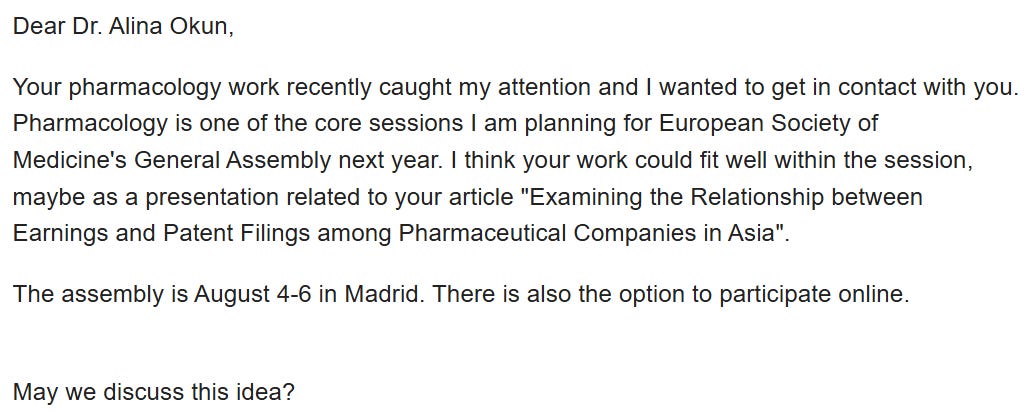My New Project: Because the World Is More Random Than We Think
I’ve always loved sharing my ideas, but newsletters weren’t cutting it. This new approach could shake up how colleges prepare students for the future.
I want to share something new I’m working on. This project came from my growing frustration with newsletters. I loved writing them at first, but they often felt too confining. I needed more room to experiment, and I knew there had to be a better way to share my research and insights.
Embracing the Power of Randomness
A few years ago, I took Daniel Vassallo’s “Portfolio of Small Bets” course. It changed how I see everything. The main idea is that life is more random than we realize. We spend a lot of time planning and predicting, but so much of what actually happens comes out of nowhere.
I saw that when I looked at my personal website. I haven’t updated it since 2020, back when I wrote 112 blog posts in just a few months. Even though it’s been dormant, the website still gets more traffic than any newsletter I’ve written.
The interesting part is that a single phrase, “ontological humility,” brings a bulk of that traffic. I wrote about it after reading “Conscious Business” by Fred Kofman. In that post, I explained that “ontological humility” is the idea that your view may not be the absolute truth and that others’ views can be just as valid. Somehow, that paragraph keeps attracting more readers than everything else I posted during that time.
That’s not the only random thing. I once wrote a blog post about “Humanocracy” by Gary Hamel and Michele Zanini, a book about how bureaucracy destroys human potential. A former political science professor at the University of Hawaiʻi found my post and quoted me in his article about the need for inspired public workers in Hawaii.
Then, there was the time I published part of my doctoral dissertation in an academic journal. Every year since, I get emails inviting me to attend conferences or submit more articles, sometimes to medical journals.
I never reply because I’m not qualified to write about medical research, but it’s still another reminder that we don’t control things as much as we think.
The Problem
Over the past five years, I’ve met people from every corner of the Learn-Work ecosystem. I’ve spoken to job seekers, employees, employers, college administrators, business leaders, and more. It often feels like a dinner table where everyone is yelling, and nobody is listening.
I see millions of people applying for hundreds of jobs and not getting anywhere. I see companies complaining about talent shortages. I see universities being forced to prove they teach skills that lead directly to jobs, even though that was never their main purpose. I see high schools pushing every student toward college when trade jobs can also be a great path. Meanwhile, business leaders are perceived as villains, and some companies refuse to hire Gen Z, seeing them as unprofessional and unloyal.
This chaos is backed by real numbers. 98% of leaders say their organization is struggling to find talent, yet 89% avoid hiring recent graduates. It’s no wonder 94% of graduates have regrets about their degrees.
It’s easy to get discouraged by all this. Yet, I keep noticing that while people complain about these broken systems, they miss the big opportunities around them. One example is the data center industry.
I interviewed a leader in that space last year who told me about 300,000 open data center jobs the industry needs to fill, and many don’t require a college degree. Data centers power almost everything, and the sector is growing.
During another recent interview, Josh Flieg, Chief Innovation Officer at Louisiana Economic Development, told me about a massive new project in Louisiana. Meta is investing over $10 billion in it. This is on top of the Stargate project, in which OpenAI, Oracle, and SoftBank are set to invest nearly half a trillion dollars in Texas data centers. LinkedIn has just released its city-level fastest-growing jobs report, and Data Center Technicians made the list for Chicago.
These are just a few examples of an industry that has real growth and real jobs, but it feels like nobody is looking there.
A Surprising Solution
This year, I decided to try a model that’s been around for centuries: directories. They aren’t the most glamorous thing in the world, but they allow me to share research in a way that people can actually use when it matters.
It reminds me of traveling. If you hear about an amazing trip or travel hack when you’re not planning to go anywhere, you’ll forget about it. But if you’re getting ready to book a flight, you want all the travel tips in one place.
It’s the same with jobs, learning, or making money. I find tons of resources and tools that could help people, but if they aren’t looking for that information at the right moment, it’s wasted.
My first directory is called SkillWorkPro. It contains resources that colleges and universities can share with students, such as internship placement organizations, job search tools, interview guides, company rankings, career assessments, and more. I’ve already seen a huge spike in usage just because people stumble on things like the Holland Code Career Quiz.
I’m even more excited about directories that focus on specific industries. I want to help students learn which areas are growing fast and then give them quick ways to research those fields so they can walk into interviews prepared. The first directory I started was for Data Centers. I have plans for others, such as Medical Augmented Reality, Legal Tech, Vertical Farming, Cybersecurity, 3D Printing, and more.
The truth is, I don’t know which of these directories will do best, and that’s okay. The world is random, and I’m treating each directory like a small bet. This lets me experiment, learn, and hopefully provide real value to people who need it.
How You Can Help
I’ll still share plenty of thought leadership articles and resources in this newsletter, and I’m excited to continue delivering value to your inbox. The directories will run alongside it, giving you a deeper way to explore whatever interests you.
There are around 5,000 colleges and universities in the U.S., and I plan to contact every single one so their Career Services departments know these directories exist. Most schools have very limited resources for students preparing for the workforce, and I believe this can make a real difference.
That’s the heart of my new project. I believe in sharing what I’ve learned in a way that helps people take action and find opportunities they might otherwise miss. If you know anyone who could benefit from these directories, please send them my way. I appreciate any help spreading the word, and I’m grateful for your support as we keep exploring this unpredictable, exciting world together.






Hi Alina! Love this idea. It keeps growing on me since the first time you shared it with me.
Out of curiosity, how often do you want to create new directories? What new directories do you have planned?